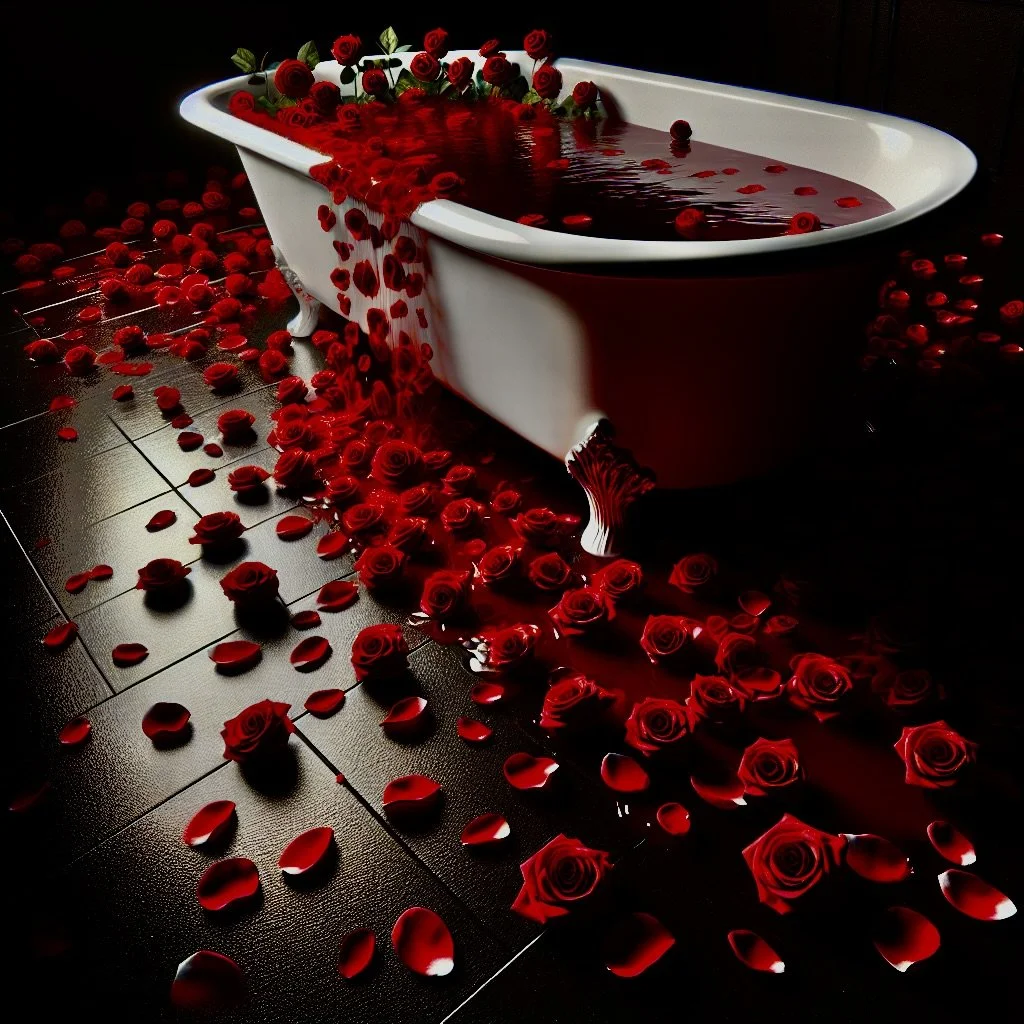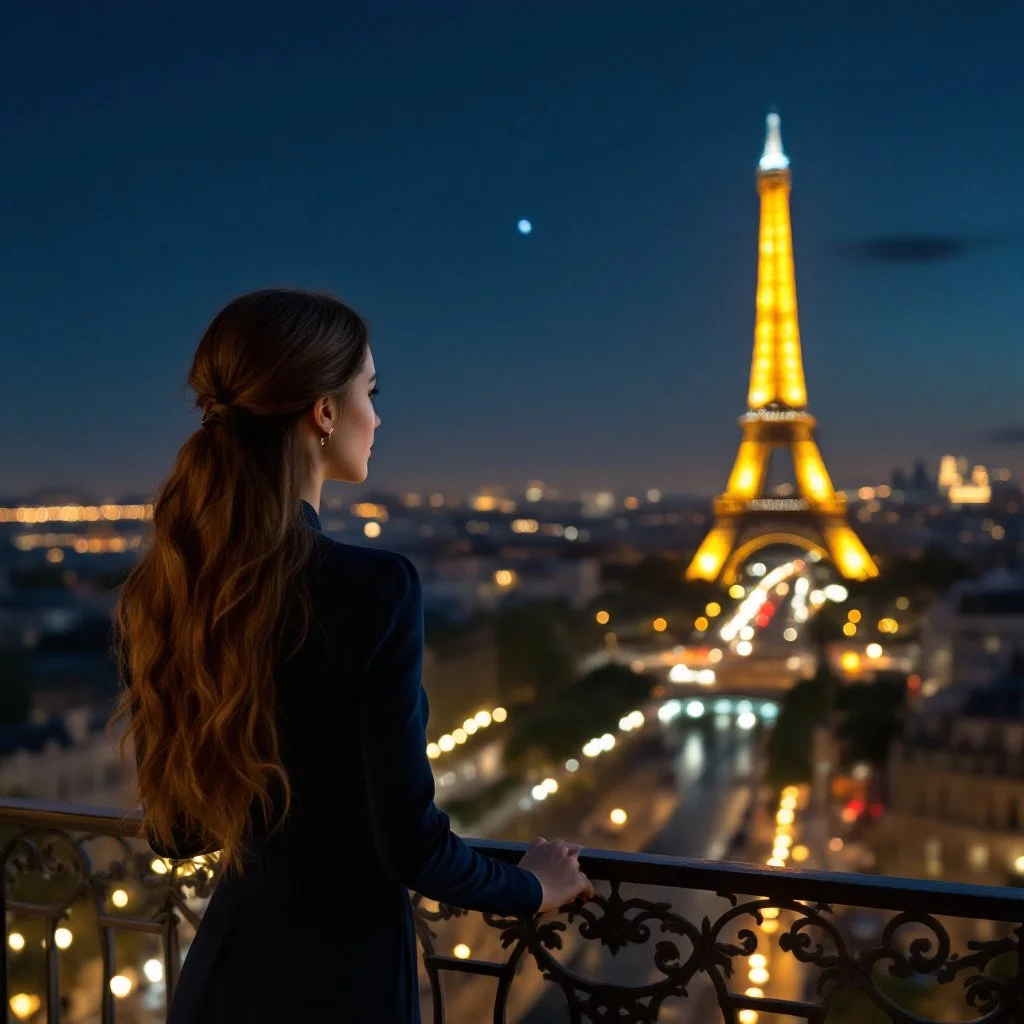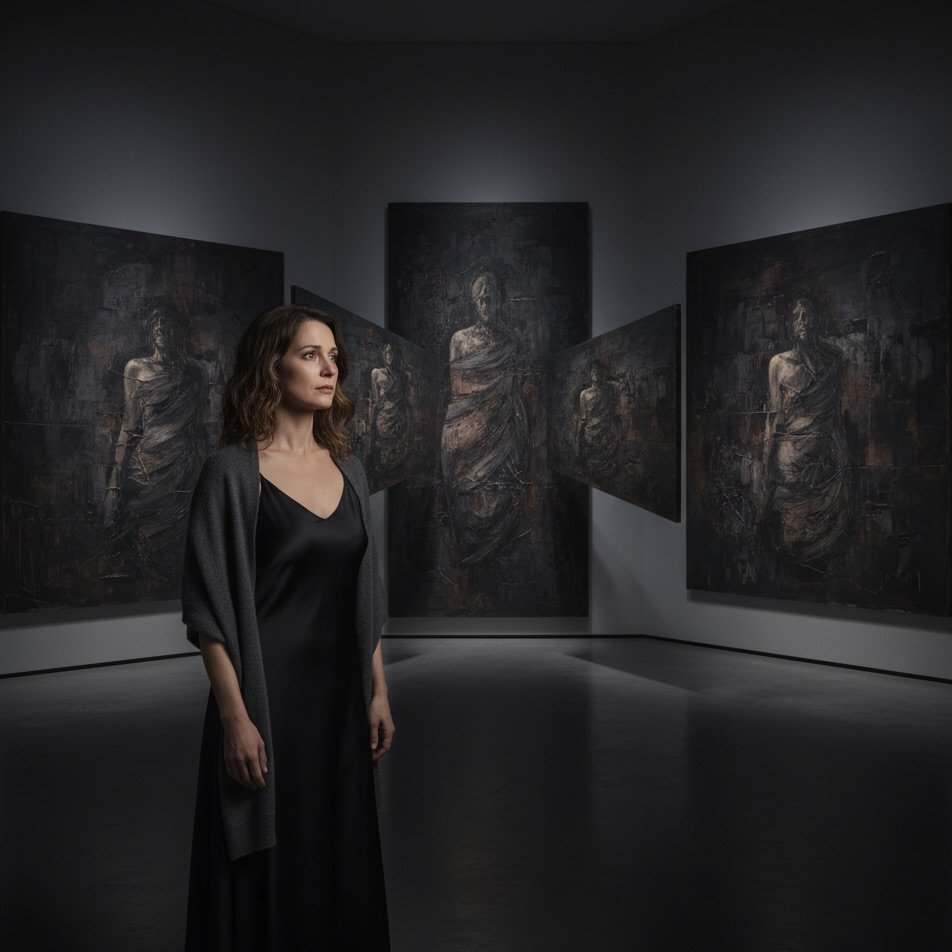ART HIDES THE TRUTH; THE ARTIST HIDES THEMSELVES
A COMPELLING PSYCHOLOGICAL FICTION NOVEL
THE PARADOX OF TIME, THE POWER OF STILLNESS, & THE QUEST FOR TRUE IDENTITY.
A DEEPLY LAYERED PROTAGONIST NAVIGATING THE COMPLEXITIES OF SELF-DISCOVERY.
A BOOK YOU WILL NEVER WANT TO PUT DOWN
A STORY YOU WILL NEVER WANT TO FORGET
THE STILL POINT
Disclaimer: Street Writer is my working name used before publication—a non de plume.
THE STILL POINT…
A Psychological Fiction Thriller
161,000 words
512 Pages
45 chapters
THE STORY…
The Still Point is a poignant psychological fiction novel that follows the journey of Chelsea Greaves, a struggling artist grappling with her identity, emotional turmoil, and the pursuit of her dreams. Raised in a challenging environment by a single mother, Chelsea's early life is marked by their frayed relationship and experiences that force her to confront the complexities of adulthood far too soon.
The narrative begins with Chelsea facing a significant setback: her application for a prestigious exhibition grant is rejected, plunging her into a deep existential crisis. This rejection forces her to reevaluate her life choices and her passion for art, leading her to consider abandoning her dreams altogether. However, with the unwavering support of her close friends, Madeline and Chloe, Chelsea finds the strength to rise from her despair.
In a surprising turn of events, Chelsea secures a surprise venue for her art exhibition, reigniting her passion and determination. As she prepares for the exhibition, she embarks on a journey of self-discovery, exploring themes of chaos and clarity, vulnerability and strength. Each piece of her artwork reflects a significant moment in her life, inviting viewers to engage with her struggles and triumphs.
Throughout the novel, Chelsea navigates the complexities of friendship, love, and the creative process. She learns to embrace her vulnerabilities and confront her inner demons, ultimately transforming her pain into a powerful expression of resilience through her art. As the exhibition approaches, Chelsea grapples with self-doubt and fear of failure, but she also discovers the profound strength that comes from sharing her story.
The Still Point is a celebration of the human experience, exploring the delicate balance between chaos and clarity, and the transformative power of art. It invites readers to reflect on their own journeys of self-discovery and the courage it takes to pursue their passions against all odds.
Official Promotional Video
THE PROTAGONIST…
Chelsea Greaves is a passionate artist navigating the complexities of her life and the world around her. Raised in a single room by her unmarried mother, Chelsea's childhood was marked by exposure to experiences that challenged her innocence. This environment instilled in her a deep understanding of chaos and clarity, shaping her artistic vision.
As a young adult, Chelsea pursued her passion for Art and literature, ultimately securing a prestigious exhibition grant that she poured her heart into, only to face the crushing disappointment of rejection. However, fueled by resilience and the unwavering support of her close friend Madeline, and later in art college, Chloe and Chelsea found the courage to rise from their despair. In a pivotal moment, she secured a venue for her Art exhibition, an opportunity that reignited her passion and determination.
Chelsea's journey is characterized by her introspective nature and her quest to articulate the complexities of human emotion through her Art. She envisions her exhibition, titled "The Dog Whistle," as a reflection of her personal struggles, breakthroughs, and the profound moments that have shaped her identity. Each piece will represent a stepping stone in her artistic odyssey, inviting viewers to engage with her experiences and reflect on their own journeys.
With a vibrant personality and a sense of humor, Chelsea embraces the chaotic and joyful aspects of life, often finding solace in moments spent with her friends. As she prepares for her exhibition, she grapples with moments of self-doubt but remains resolute in her belief that her story deserves to be told. Chelsea Greaves embodies the spirit of resilience, creativity, and the transformative power of Art, making her a relatable and inspiring figure in the world of psychological fiction.
Chelsea Greaves
DEUTERAGONIST…
Initially introduced as one of Chelsea's "closest friends," Madeline embodies unwavering empathy and a grounded practicality. She consistently offers Chelsea a "palpable lifeline", providing reassurance, challenging self-doubt, and offering tangible support, from toasting Chelsea's exhibition despite prior rejections to physically participating in the symbolic "lantern ritual" of releasing past failures. Madeline's early actions highlight her perceptive nature; she instinctively recognizes Chelsea's withdrawal and self-harm, initiating conversations that Chelsea desperately needs but is terrified to begin. Her memory of cradling a self-harming Chelsea in their adolescence ["Fuck, Chelsea, what have you done?"] establishes a deep history of protective, if sometimes overwhelming, care.
However, Madeline's arc undergoes a significant shift, transcending mere friendship to embrace a more active and potentially morally complex role in Chelsea's journey towards confronting her trauma. Her persistent, albeit gentle, probing into the legitimacy of Chelsea's exhibition opportunity, her concern about the "invisible benefactor", and her deliberate dismissal of her own "legal complexities" subtly foreshadow a hidden depth to her involvement. The pivotal revelation occurs where Madeline is found holding an envelope containing a chilling note: "The artist can no longer hide behind her work," alongside a sketch directly referencing Chelsea's childhood trauma [the "willow tree... empty rowing boat"]. This scene transforms Madeline from a reactive supporter into a proactive, orchestrating force, revealing that she has been in possession of critical information – and potentially a hidden agenda- long before Chelsea's conscious awareness.
Madeline's motivations become a source of intellectual intrigue. Is she a morally complex friend, meticulously engineering a catharsis she believes Chelsea desperately needs, even if it entails calculated exposure and pain? Or is she, herself, a "silent victim" or an indirect casualty from Chelsea's past, now driven by a personal quest for justice or resolution that intertwines with Chelsea's narrative?
Madeline Briar
THE ANTAGONIST…
Fletcher is a prominent Art critic in the novel The Still Point, known for his discerning eye and insightful commentary on contemporary Art. With a degree in Art History, he has spent years immersed in the Art world, attending exhibitions and galleries, which has established him as a well-respected figure in the community. Fletcher is characterized by his analytical mindset and candid nature; he possesses a sharp intellect and a keen ability to dissect artwork, providing thought-provoking critiques that challenge artists to think deeper about their work.
However, despite his reputation he cuts a frustrated figure with a dark side of control and manipulation. Driven by his past he carries a grudge. In. Chelsea he sees a chance to redeem the past and will not let anything stand in his way. Although he sees genuine potential in Chelsea, and her Art there is a hidden agenda that lurks beneath the surface.
The dynamic between Fletcher and Chelsea is marked by both tension and respect. While his critical eye forces her to confront her vulnerabilities, his belief in her potential motivates her to explore deeper themes in her Art. Fletcher embodies the themes of authenticity and the role of critique in the artistic process, emphasizing that true artistry comes from embracing one’s personal narrative. His character highlights the significance of mentorship in the arts, showcasing how experienced voices can shape and inspire emerging talents. Ultimately, Fletcher serves as a crucial element in The Still Point, providing the challenge and support Chelsea needs to navigate her journey as an artist. But at what cost?
Charles Fletcher
Other Key Characters
Chloe Adams
Mark Anderson
Mary Collins
Stuart Campbell
LIMITED OFFER
Follow the link below to get your name in print. Choose one of the six characters above.
https://www.kickstarter.com/projects/thestillpointnovel/the-still-point-the-past-lingers-art-insists
Diane Abbott
Jeffrey Collins
"The Still Point" is an absolutely stunning and deeply emotional journey. Chelsea's story is incredibly raw and resonant, pulling you into her world of art, trauma, and fierce resilience. A truly unforgettable read that stayed with me long after I finished!”
“I loved the unique "Palette" structure of this novel! It felt so artistic and perfectly complemented Chelsea's creative process. The way the past and present weave together is masterful, creating a truly immersive and engaging experience.”
“Chelsea is such a compelling protagonist – her growth and vulnerability are beautifully depicted. The relationships, especially with her friends and Fletcher, felt incredibly real and added so much warmth and depth to her journey.”
“The symbolism is rich and thought-provoking, making every page a discovery. A brilliant exploration of the human spirit!”
“The writing in "The Still Point" is simply captivating! The prose is so evocative and rich, painting vivid scenes and emotions.”
“What an incredible debut! "The Still Point" is a powerful, beautifully crafted novel that moves and inspires. Highly recommend!”
Excerpt from Palette 1
My eyelids flutter against the intrusive brightness, before they settle, with an almost compulsive fascination, on a haunting sight, a delicate, yet undeniably present, trail of blood-red rose petals strewn carelessly, artfully, from the very edge of my bed, leading, with an almost deliberate precision, out toward the open window, a crimson path to an unknown destination. My mind reels, disoriented. I attempt to piece together fragments of memory, elusive and sharp, like shards of shattered glass. Unable to uncover the answers that stubbornly evade me, I allow myself to be drawn, once more, to the canvas across the room, now drenched in the soft, eerie glow of dawn.
Excerpt from Palette 4
The water, once cool, now hums with a strange, vibrant heat where skin meets blade. Tears stream unchecked down my face, mingling with the water, as each crimson ribbon unfurls, swirling like shattered rose petals, horrifying beauty, a new palette of profound despair and fierce defiance blooming in the depths. In this fleeting yet infinite pause, a grin, raw and desperate, a twisted testament to my dark courage, breaks across my lips as I resolve, with unwavering conviction, to embrace the pervasive chaos surrounding me. I will become a tempest in a world that seeks my stillness, rising with all my might.
Excerpt from Palette 32
As I opened the door to the balcony, a recurring dream washed over me, a vivid vision interwoven with profound beauty and poignant nostalgia. The lace curtains fluttered gently in the breeze, beckoning me to step outside. A faint chime, reminiscent of distant wind chimes, echoed softly, bridging the dream and the present with delicate suspension. The pervasive smell of rain mingled with the evening air, adding a layer of profound longing to the moment. I gazed over the balcony railing, my mind swirling with profound, existential questions. What if we experience something for the first and last time simultaneously? What, precisely, happens then? Perhaps this was the singular means to safeguard this perfect moment. My breath holds as I step forward…
The Still Point Timeline
2025
May 4th - Outline completed.
May 5th - Writing begins.
October 17th - Contract signed for the Audiobook.
October 27th - Official Website launched.
December 20th - Audiobook recording begins.
2026
February 14 - Audiobook is available
March 24 - The novel is published & available in Hardback, Paperback and ebook
Use your camera to copy the QR code and share this page
Welcome to “The Still Point,” a novel that moves like a heartbeat under glass, a story where time misbehaves and memory refuses to stay bought and paid for. The Still Point is not a tidy map but a jagged shoreline, where the sea keeps secrets and the mind keeps count of them in a language that sometimes betrays you and sometimes forgives you just enough to keep you reading. If you crave certainty, you will watch it slip away; if you desire truth, you will lean in as the truth slips through your fingers and rearranges itself into another shape. This fiction thriller is not built from shocks alone but from the tremor that runs through every sentence when a person realizes what memory can do: it can protect, it can punish, it can lie, it can crack open a room you thought you knew and reveal a doorway you never expected.
So enter this world as a reader who wants to be unsettled, to be provoked, to be asked to live inside a mind that is both vulnerable and vigilant. The Still Point will not explain everything, but it will insist that you stay close to the tremor, listen for the truth that hides in the margins, and reflect on what it means to inhabit a life where the center feels momentarily absent but the urge to know remains fierce. Welcome to a book built to haunt you in the best possible way: with atmosphere that cuts, questions that linger, and a spine of suspense that will hold you through the long, waiting pull of memory toward a truth that may rescue you, or redefine what you think you were defending in the first place.
Message from the author -
I would like to thank the following people for their support - Anna Gilliam-Abassi… Denise Mahaney… Chrissie Hubb… René Grandon-Scribe… Caryn Donavan… Sonia Waters… Olivia Gilliam
A BOOK YOU WILL NEVER WANT TO PUT DOWN; A STORY YOU WILL NEVER FORGET
© The Still Point 2025
The Art Exhibition
THE DOG WHISTLE - VOICE OF THE SILENT VICTIM
"I am no longer submerged beneath the tranquil waters of fear, afraid and alone. Yet, I cannot emerge without causing ripples that I will not be able to control; that, however, is the risk I am now willing to take!”
- Chelsea Greaves. Artist.
You're Invited to an Exhibition... You May Never Leave. Her Art is a scream. Every canvas Chelsea Greaves paints is a desperate plea against a past that refuses to die. But her groundbreaking exhibition, "The Dog Whistle," is about to turn her lifeline into a target. Pulled into a dangerous game by a magnetic, predatory critic and shadowy figures from her childhood, Chelsea must navigate a world where trust is a lie and every revelation could shatter her.
Our Partners
Social Media Links

Contact us.
email@example.com
(555) 555-5555
123 Demo Street
New York, NY 12345



























